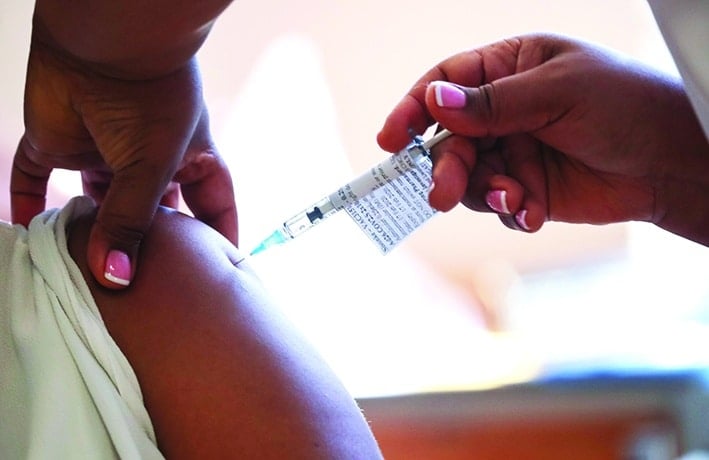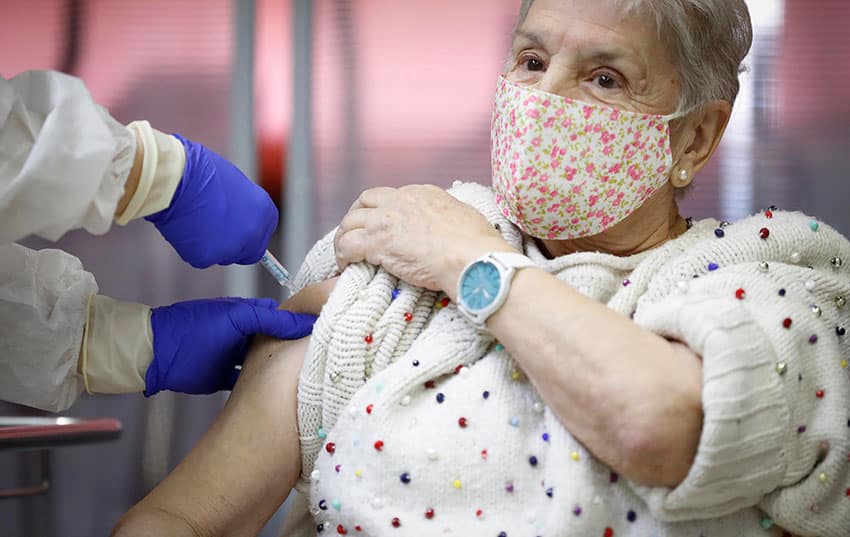
I am in my 70s and have some questions about Covid-19 vaccinations that perhaps you could answer for me. Can I take a vaccine derived from aborted foetuses, as I understand one of them is, and do I have a moral obligation to be vaccinated at all?
In December 2020 the Vatican’s Congregation for the Doctrine of the Faith issued a Note on the morality of using some anti-Covid-19 vaccines, and I will draw on it to answer your questions.
As you say, at least one of the vaccines available in this country, the one produced by Astra-Zeneca, was derived from aborted foetuses. The Congregation for the Doctrine of the Faith issued the Instruction Dignitas Personae back in 2008 on the morality of using vaccines derived from aborted foetuses to prevent children’s illnesses.
It concluded that, in the absence of any other vaccine, their use was acceptable.
Since the cell lines used for the vaccines were derived from foetuses aborted back in the 1970s, the cooperation of the person using the vaccines is remote and there is a proportionate reason to use them and their use is morally justified.

Those same cell lines have now been used to produce at least one anti-Covid vaccine and the same criterion applies. The difference today, however, is that in many countries there are several different vaccines available, so that wherever possible the person should choose a vaccine whose origin is not ethically tainted.
Nonetheless, there may be circumstances in which a person in fact cannot choose which vaccine to use. The Note explains that “when ethically irreproachable Covid-19 vaccines are not available (eg in countries where vaccines without ethical problems are not made available to physicians and patients, or where their distribution is more difficult due to special storage and transport conditions, or when various types of vaccines are distributed in the same country but health authorities do not allow citizens to choose the vaccine with which to be inoculated) it is morally acceptable to receive Covid-19 vaccines that have used cell lines from aborted foetuses in their research and production process” (n. 2).
In view of this, a person in these circumstances should have no qualms about receiving a vaccine derived from aborted foetuses.
Another consideration to take into account is the relative effectiveness and the relative danger of harmful side effects, of one vaccine over another. This may argue in favour of receiving the vaccine from aborted foetuses even when another vaccine is available. Here the cooperation in the evil of abortion of the person receiving the vaccine is very remote and it is material, not formal cooperation, meaning that the person is opposed to abortion.
The Note explains: “The moral duty to avoid such passive material cooperation is not obligatory if there is a grave danger, such as the otherwise uncontainable spread of a serious pathological agent – in this case, the pandemic spread of the SARS-CoV-2 virus that causes Covid-19.
“It must therefore be considered that, in such a case, all vaccinations recognised as clinically safe and effective can be used in good conscience with the certain knowledge that the use of such vaccines does not constitute formal cooperation with the abortion from which the cells used in production of the vaccines derive” (n. 3).
Anti-vaccine? You will need to take extra care
The Note answers that “vaccination is not, as a rule, a moral obligation and that, therefore, it must be voluntary. In any case, from the ethical point of view, the morality of vaccination depends not only on the duty to protect one’s own health, but also on the duty to pursue the common good.
“In the absence of other means to stop or even prevent the epidemic, the common good may recommend vaccination, especially to protect the weakest and most exposed.
“Those who, however, for reasons of conscience, refuse vaccines produced with cell lines from aborted foetuses, must do their utmost to avoid, by other prophylactic means and appropriate behaviour, becoming vehicles for the transmission of the infectious agent. In particular, they must avoid any risk to the health of those who cannot be vaccinated for medical or other reasons, and who are the most vulnerable” (n. 5).
In summary, there is no strict obligation to be vaccinated but, for the sake of the common good, especially of the health of vulnerable people, it would be recommended. Those who choose not to be vaccinated should take great care to avoid infecting vulnerable people.
Related:
